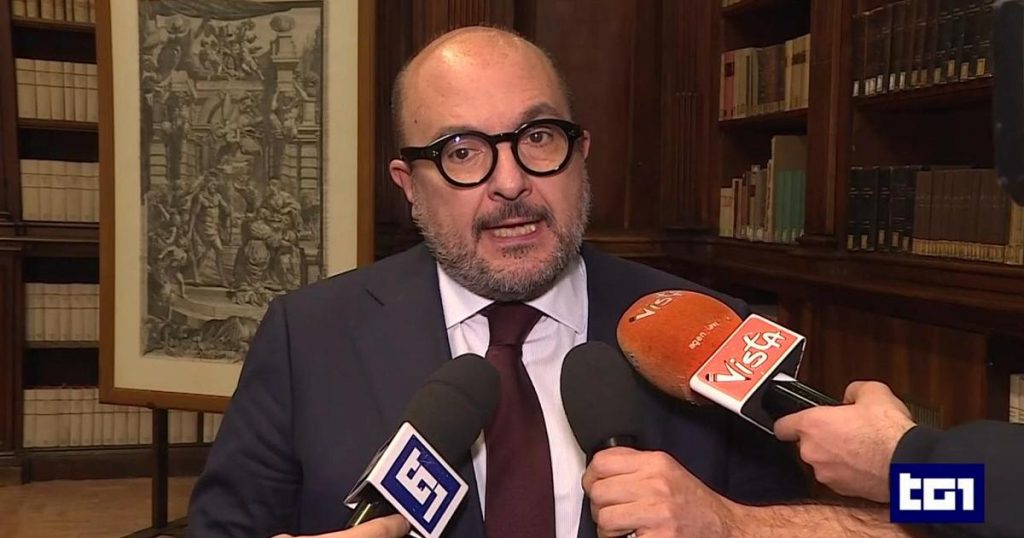In the midst of a media storm surrounding Maria Rosaria Boccia, a consultant who never formalized her working relationship with the Ministry of Culture, Minister Gennaro Sangiuliano made a statement clarifying that not a single euro from the ministry was used for her travel and lodging expenses. Initially, the minister had considered appointing her as an advisor for major events on a pro bono basis, but after concerns of potential conflicts of interest were raised within the Cabinet, the appointment was ultimately not pursued. Boccia, who refers to herself as the “President of Milan Fashion Week” on Instagram, defended herself by stating that she was under the impression that the ministry would reimburse the expenses of advisors, and all her trips were organized by the ministry’s Chief of Staff.
The controversy further intensified when the Camera Moda (Italian Fashion Chamber) issued a formal warning to Boccia for unauthorized use of the “Milano Fashion Week” trademark, as she had never held any official roles during the event. Despite the unfolding situation, Minister Sangiuliano found support from Prime Minister Giorgia Meloni during a televised appearance, where she vouched for the fact that Boccia had not accessed any confidential documents, particularly concerning the G7, and emphasized that no public funds had been spent on her. Meloni highlighted the importance of transparency and accountability in the government’s actions, especially in matters involving taxpayer money. Following the Prime Minister’s statements, Boccia herself responded on Instagram by sharing pages from a document titled “Meeting of G7 Culture Ministers – Naples, September 19-21, 2024: Culture: global public good, global responsibility.”
The situation surrounding Maria Rosaria Boccia raised questions about ethics and accountability within the Ministry of Culture, prompting Minister Sangiuliano to address the controversy publicly. Despite initially considering Boccia for a voluntary advisory role, concerns over potential conflicts of interest led to the decision to not proceed with her appointment. Boccia’s claims of being under the impression that the ministry would cover her expenses for advisory trips were met with skepticism, particularly in light of the Chamber of Fashion’s warning regarding the “Milano Fashion Week” trademark. Prime Minister Meloni’s defense of the minister and assurance that public funds were not used for Boccia has underscored the government’s commitment to transparency and public accountability in the handling of taxpayer money.
The involvement of Maria Rosaria Boccia in the Ministry of Culture’s affairs has prompted a wider discussion on the responsibilities of consultants and advisors in government institutions. The controversy surrounding her unauthorized use of the “Milano Fashion Week” trademark and questions raised about her claim regarding ministry expenses reimbursement highlight the importance of clear guidelines and oversight in such appointments. As the scrutiny of Boccia’s actions and connections continues, Minister Sangiuliano and his handling of the situation will be closely monitored for adherence to ethical standards and proper use of public funds. The government’s response to the controversy, including Prime Minister Meloni’s public support for Sangiuliano, reflects broader efforts to uphold transparency and integrity in governance, particularly in matters concerning financial accountability and potential conflicts of interest.















